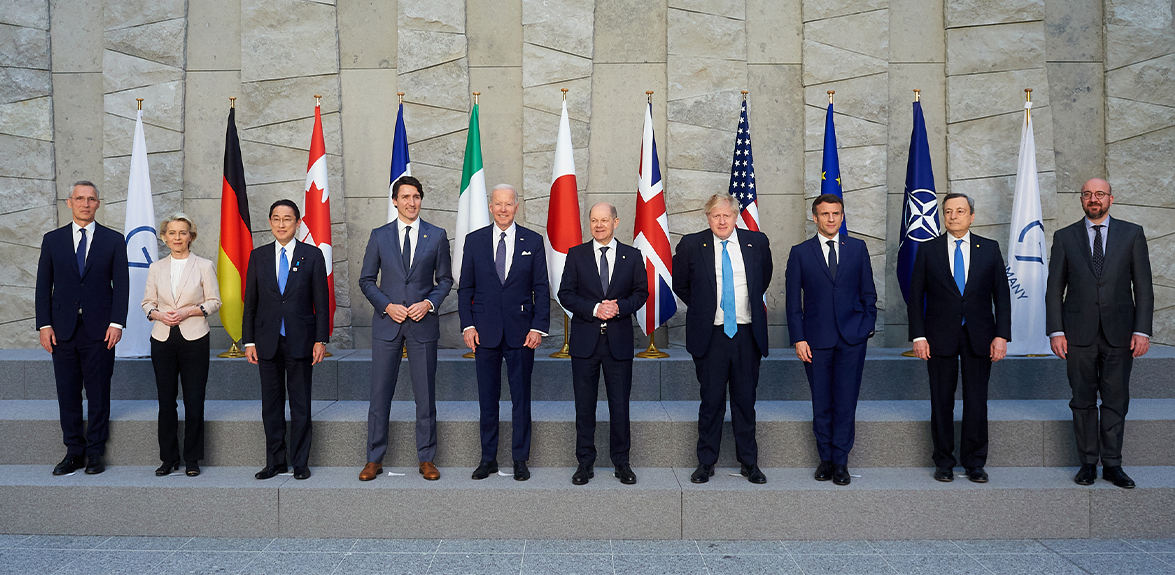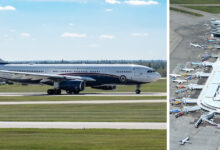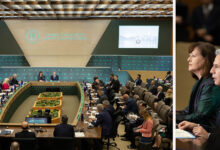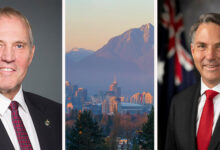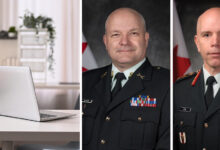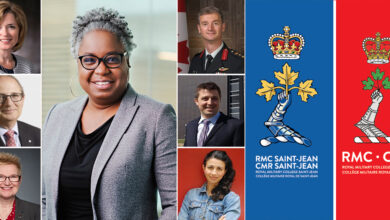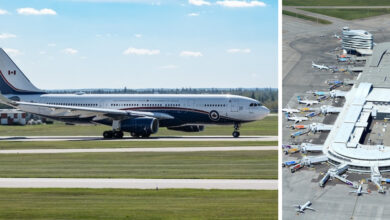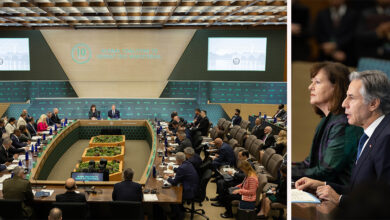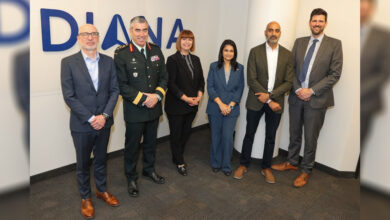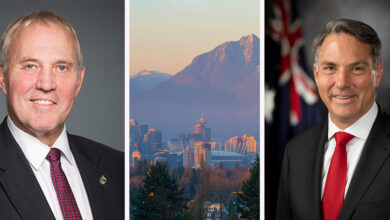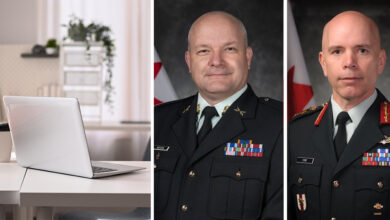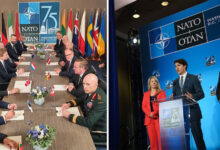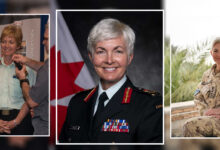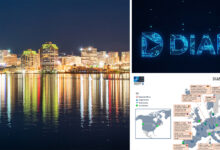Today’s News
Group of Seven discuss response to Russia’s Attack
Above image: Group of Seven leaders with NATO officials.
The Group of Seven (G7) met in Brussels this week to discuss responses to Russia’s attack and Ukraine and how to support the people of this eastern European country under siege.
“We are united in our resolve to restore peace and stability and uphold international law. Following the United Nations General Assembly resolution on 2 March 2022, we will continue to stand with the overwhelming majority of the international community, in condemning Russia’s military aggression and the suffering and loss of life it continues to cause,” read a statement released by the G7 countries on March 24.
The German president invited the G7 leaders. Other countries in the G7 include Canada, France, Italy, Japan, the United Kingdom, and the United States.
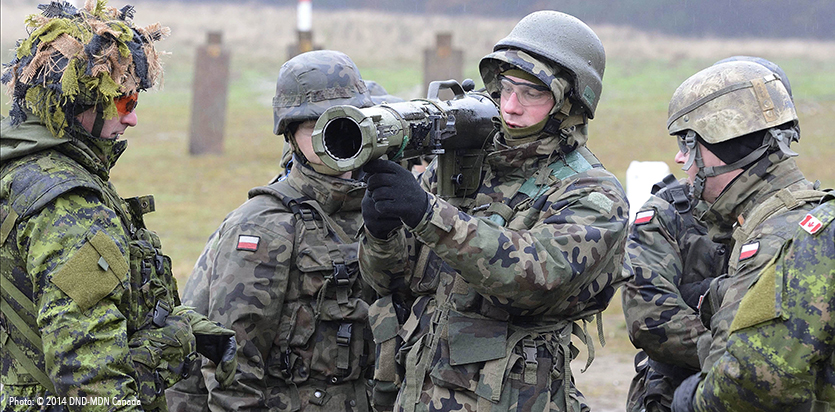
Halting Attack
Throughout its message, the G7 repeatedly called on Russia to halt its attack, comply with ICC orders, and withdraw its troops.
It also issued a stark warning to countries helping Russia or turning a blind eye to their aggression, “Moreover, we urge all countries not to give military or other assistance to Russia to help continue its aggression in Ukraine. We will be vigilant regarding any such assistance.”
Namely, G7 called out Belarus for its continued assistance to Russia and warned it would hold the Lukashenko regime in Belarus accountable.
The G7 also affirmed it would continue to support Ukraine against cyber incidents.
“In preparation for any Russian malicious cyber response to the actions we have taken, we are taking steps to increase the resilience of the infrastructure in our respective nations by strengthening our coordinated cyber defences and improving our shared awareness of cyber threats. We will also work to hold accountable those actors that engage in destructive, disruptive, or destabilising activities in cyberspace.”
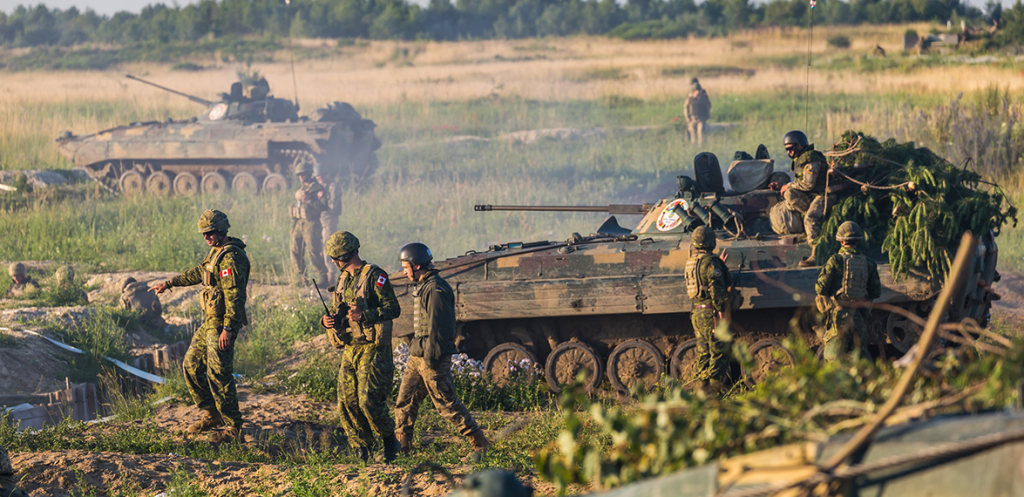
Russia’s Wartime Conduct
In the joint statement, the G7 countries highlighted Russia’s wartime conduct and its aggression against innocent civilians. Specifically, the ongoing attacks on the Ukrainian population and critical infrastructures such as schools and hospitals. The statement also mentioned it welcomes international investigations of Russia’s attack, such as the prosecutor of the International Criminal Court and possible war crimes.
“The siege of Mariupol and other Ukrainian cities and the denial of humanitarian access by Russian military forces are unacceptable. Russian forces must immediately provide for safe pathways to other parts of Ukraine, as well as humanitarian aid to be delivered to Mariupol and other besieged cities,” stated the joint statement.
Another point of concern the G7 statement highlighted is the Russian military’s activities near nuclear sites, which can create “extreme risks for the pulsation and the environment, with the potential for catastrophic result.” As a result, the G7 urges Russia to cooperate with the International Atomic Energy Agency.
“We warn against any threat of the use of chemical, biological and nuclear weapons or related materials. We recall Russia’s obligations under the international treaties to which it is a signatory, and which protect us all.”
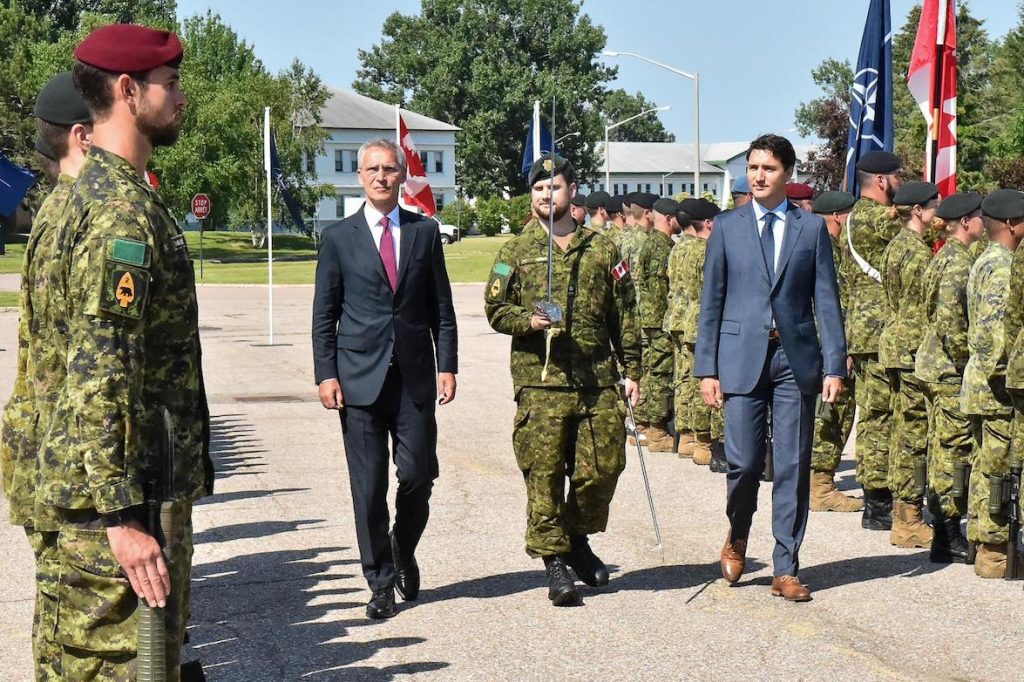
Sanctions
The G7 also reaffirmed its continued commitment to levying economic and financial sanctions against Russia and to work with other governments to ensure they do the same.
Specific ministers have been tasked with the responsibility to monitor the sanctions and coordinate any responses to evasive measures, including regarding gold transactions by the Central Bank of Russia.
“We stand ready to apply additional measures as required, continuing to act in unity as we do so. We commend those partners who have aligned with us in these efforts.”
To this end, the G7 countries are working to reduce their reliance on Russian energy and look for secure alternative and sustainable supplies.
“We commit to actively support countries willing to phase out their dependency on Russian gas, oil and coal imports. We call on oil and gas producing countries to act in a responsible manner and to increase deliveries to international markets, noting that OPEC has a key role to play.”
The statement also implied that the current crisis further encourages the world to move towards the goals of the Paris Agreement, the Glasgow Climate Pact of limiting the rise in global temperatures.
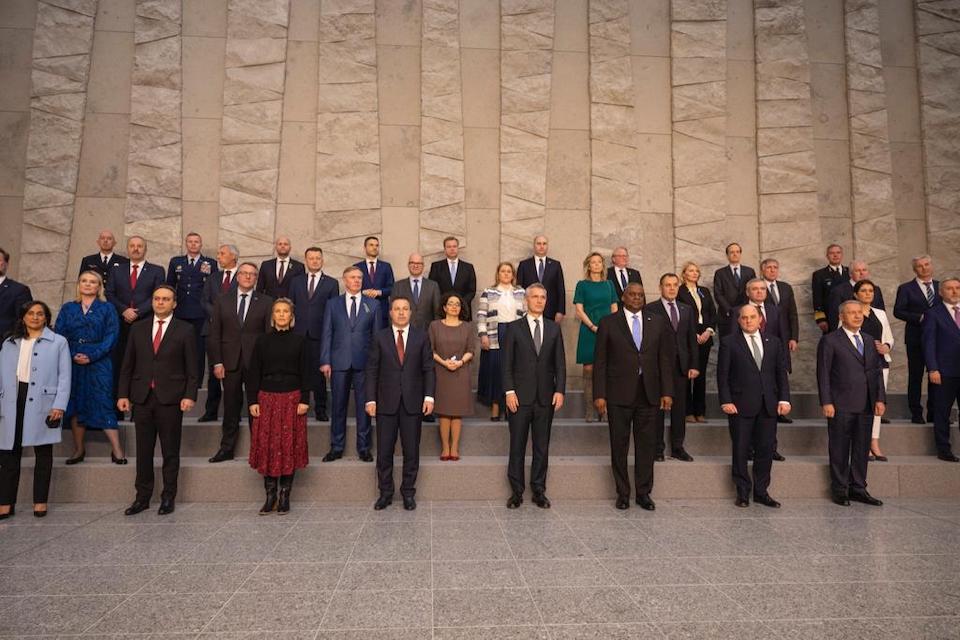
Impact on the World
It is no secret the current conflict in Ukraine has impacted humanity at large and the global economic recovery from COVID-19.
“His decision is putting the global economic recovery at risk, undermines the resilience of global value chains and will have severe impacts on the most fragile countries. We call on the international community to take action by fully recognising Russia’s responsibility and protecting the most vulnerable countries, with the support of international and regional institutions,” read the statement.
More importantly, however, the war has impacted the global food supply.
“We recall that the implementation of our sanctions against Russia takes into account the need to avoid impact on global agricultural trade. We remain determined to monitor the situation closely and do what is necessary to prevent and respond to the evolving global food security crisis. We will make coherent use of all instruments and funding mechanisms to address food security, and build resilience in the agriculture sector in line with climate and environment goals.”
Consequently, G7 has made the following commitments:
-
- Address potential agriculture production and trade disruptions;
- Provide a sustainable food supply in Ukraine and support Ukrainian production efforts;
- Step up contribution to organizations such as the World Food Programme;
- Work with Multilateral Development Banks and International Financial Institutions to provide support to countries with acute food insecurity;
- Call for an extraordinary session of the Council of the Food and Agriculture Organization to address the food insecurity from this conflict;
- Call on participants of the Agriculture Markets Information System to share information and options to keep rice under control;
- Avoid export bans and other trade-restrictive measures;
- And maintain open and transparent markets.
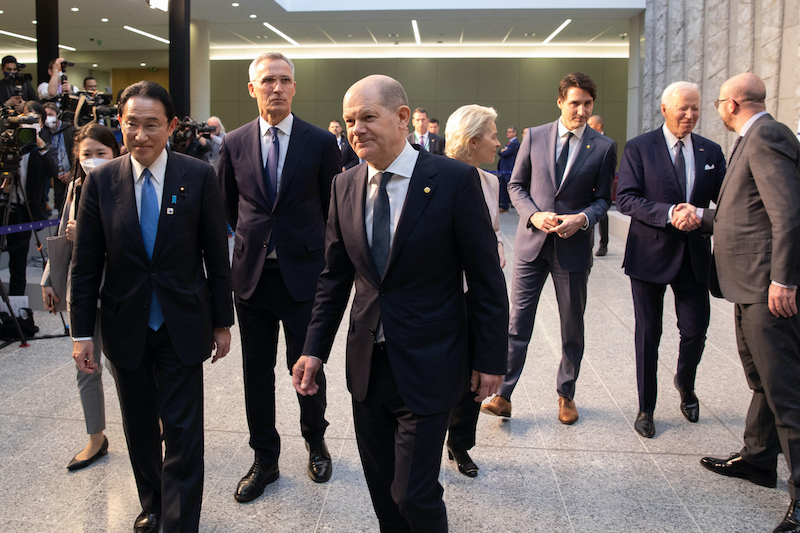
Addressing Russians
G7 countries also made it a point to address the Russian people and express their fears for the Russian people in the face of hostile leadership. In addition, Russia’s actions against their own people, including their disinformation campaign, were also condemned.
“We express our support to those Russian and Belarusian citizens standing up against the unjustified war of aggression against their close neighbour Ukraine. The world sees them. The people of Russia must know that we hold no grievances against them. It is President Putin, his government and supporters, including the Lukashenko regime in Belarus, who are imposing this war and its consequences on Russians and it is their decision that besmirches the history of the Russian people.”
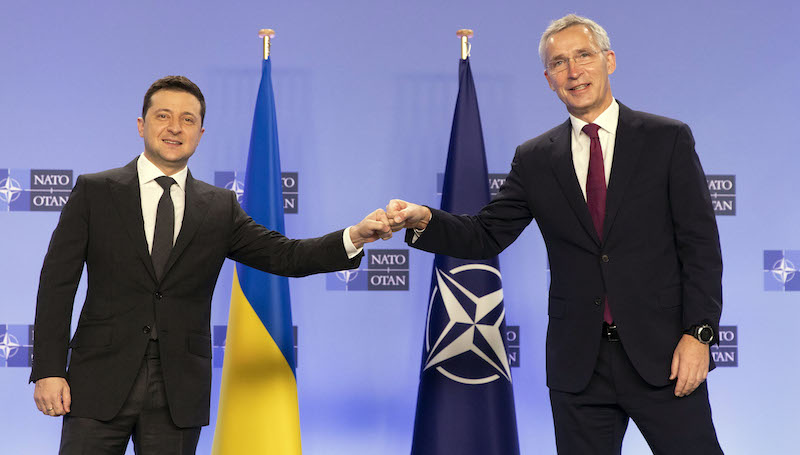
Standing with the Ukrainian People
At the heart of its message, the G7 echoed its support for the people of Ukraine and their “heroic resistance” to Russia’s aggression.
“We will step up our support to Ukraine and neighbouring countries. We thank all those who are already providing humanitarian aid to Ukraine and ask others to join. We will furthermore collaborate in our efforts to bolster democratic resilience and defend human rights in Ukraine and neighbouring countries.”
The G7 also applauded countries taking in refugees from the crisis and mentioned the need to step up assistance to these countries.


